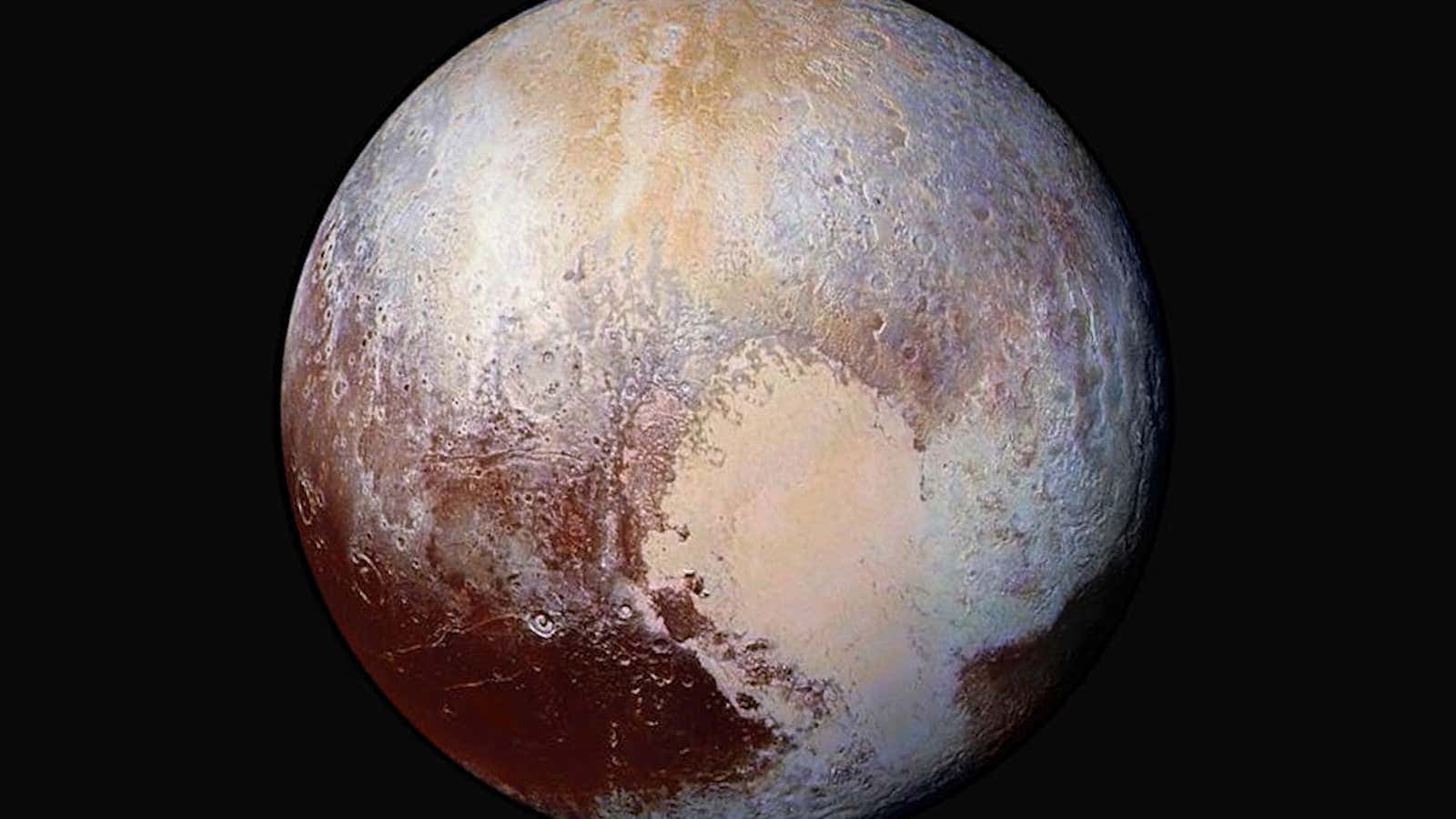The wounds never healed. But then, how could they?
After more than a dozen years, astronomers are still sniping at each other over the 2006 decision by the International Astronomical Union (IAU) to demote Pluto from an official planet to a dwarf planet. The highly technical back-and-forth got a new contribution this week, in the form of a study that claims our solar system’s farthest-flung celestial body is also its “second-most complex, interesting planet.”
Published in the journal Icarus, the study comes from astronomers at the University of Central Florida, who say an object’s dynamic orbital path should be less important in defining a planet than other classifying details. “Pluto…has an underground ocean, a multilayer atmosphere, organic compounds, evidence of ancient lakes and multiple moons,” writes co-author Philip Metzger in a statement. Metzger says planet identification should factor in how large the celestial body is, as well as whether its gravity allows it to become spherical in shape.
The IAU’s 2006 decision discounted that complexity as having anything to do with a planet’s status as such, instead relegating Pluto to a contingent of more than a dozen small spherical objects floating beyond the blue hue of Neptune. Although Pluto makes its way around the sun, IAU officials noted that it doesn’t “clear its own orbit.”
“Pluto is dead,” astronomer Mike Brown proclaimed at the time. “Pluto is not a planet. There are finally, officially, eight planets in the solar system.”
The announcement pissed off a lot of astronomers, in part because the Pluto vote took place on the final day of the IAU’s annual meeting in Prague. Only 424 of more than 13,000 member astronomers cast votes.
“I’m embarrassed for astronomy,” Alan Stern told Space.com in 2006. “Less than 5% of the world’s astronomers voted.” Stern was in charge of NASA’s New Horizon’s mission to Pluto and is a co-author of the new study.
Meanwhile Pluto itself—caught in the sun’s gravitational grip and powerless to save face—is the real victim here. Sure, it might not command a room like Jupiter. It could never outshine the splendor of Saturn, dripping in ringed eleganza. But Pluto has a lot going for it, like its oceans and that bad-boy glum reserved for only the most mysterious and quiet of outcasts. As mere mortals squabble over what it is or is not, Pluto continues its lonely march around our sun. On paper, it’s a diminished version of its former self, a ball of ice and rock twirling some 4.67 billion miles away from us with its five companion moons, Charon, Styx, Nix, Kerberos, and Hydra. But in our hearts, it’s so much more. Spin back into our, arms, Pluto.
